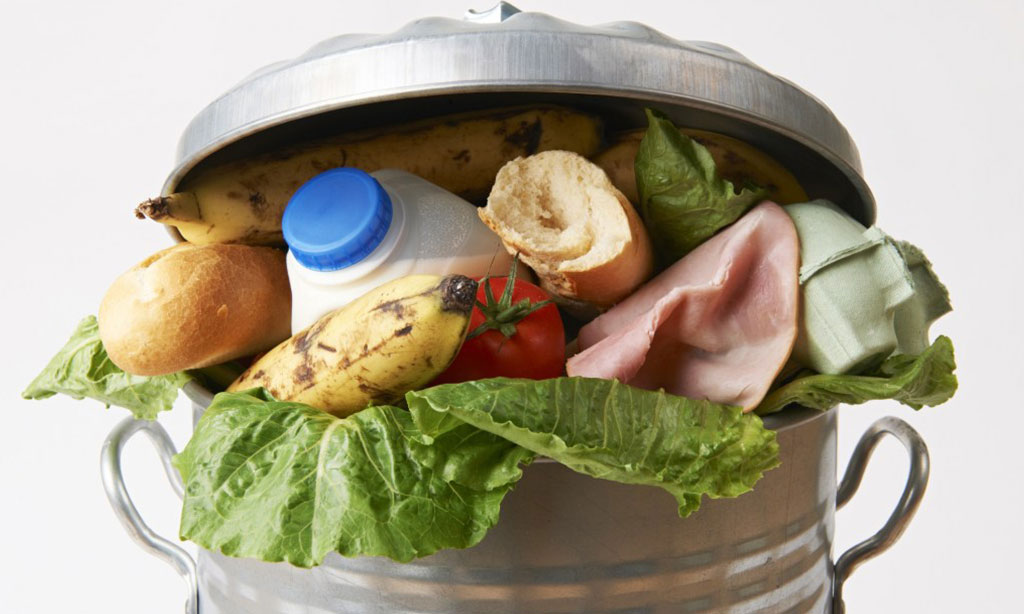By Angela Wallace, MSc, RD
We have a food waste problem in Canada, and it’s a huge one. So huge that it’s referred to as a $31-billion-dollar problem. Across Canada, we are wasting $31 billion dollars of food, which is 40% of food purchased yearly…..almost half! In addition, research has suggested that we are wasting approximately 396 kilograms of food per capita annually and an average of $28 of food each week per household (that’s almost $1500 a year)!
We often think the food industry produces most of the waste, but did you know that 47% of food wasted in Canada occurs at the household level? The worst part is 80% of this food wasted was once perfectly edible, meaning we have let it waste or deteriorate on the counter or in our fridges before we had the chance to eat it. Food waste is an issue with major environmental impacts, and making changes to how you shop, store, and use your food can make all the difference.
So how exactly can you make a difference in your own home? I am going to share my top five tips to reduce food waste and eat healthy.
- Plan your meals
Planning your meals can make all the difference when it comes to food waste. We often head to the grocery store with great intentions but then life gets busy and our once beautiful produce goes to waste. I say produce, because research has suggested that approximately 2/3 of food wasted comes from fruit and veggies.
Tip # 1: Take a look at your week and plan accordingly. If you know you will eat out one night or be super busy and have grilled cheese and salad another, plan for that. Don’t buy more than you need or have time for.
Tip #2: Make it easy. What do you need to do to make eating fruit and veggies convenient? Maybe you need to buy frozen veggies, pre-sliced produce, or salad bags. Look at your week and make the healthy choice the easy choice to help reduce waste.
- Shop mindfully
There are a few things you can do at the grocery store to help reduce food waste.
Tip #1: Pick the first one. Don’t reach for the items at the back (e.g., reaching for the milk carton at the back of the fridge or the last salad baggy).
Tip #2: Pick the imperfect produce. Imperfect produce is just as tasty and nutritious as their perfect counterpart. In fact, in Canada we waste just as much food as we eat each year, with 25 million pounds of fruit and veggies being rejected before even making it to the grocery store due to imperfections.
Give imperfect produce a chance, especially when you will be slicing, dicing, or mincing them into your meals.
Tip #3: Choose the ripe produce. What will you be using that item for and can it be ripe? For example, are you using the tomatoes to make tomato sauce or the avocados to make guacamole? If the softness isn’t an issue or can be worked into your meal, choose the ripe produce. Choosing ripe produce in the grocery store can help reduce the amount of food wasted.
What about best-before dates?
Best-before dates are chosen by companies based on a products peak quality. That doesn’t mean the product is no longer good after that date, it simply means the product is no longer at its peak quality. In fact, many foods can actually go bad before the best- before date or stay fresh way past the date. Always inspect your food by looking, touching, and smelling to determine freshness.
Tip: Take advantage of sales at the grocery store when foods are getting close to their best-before date, because its usually food that still has some excellent quality left.
- Make your food last longer
Use your freezer. Cook things ahead of time and freeze them for busier weeks. If you have produce or any food that is about to go bad, freeze it before the best-before date and defrost when needed. This works especially well for bread, berries, and meat/fish.
Store your food properly. Did you know that fruit can last up to two weeks longer when kept in the fridge instead of a fruit bowl on the counter? Be sure to keep most of your produce in the packing until ready to use, and in the two lower compartments of your fridge. Those drawers are specifically made to help keep your produce fresh longer.
Tip: Make sure your fridge is set between 0-5 degrees Celsius to help your food stay fresh and last longer. Research has suggested that most of us (70%) keep our fridges too warm.
- Get creative – use your overripe produce (see ‘Almost bad’ berry jam and Veggie stock recipes)
When life gets busy, our plans sometimes don’t work out. If that happens and you have over ripe produce, get creative and find ways to use it. Above are two recipes to help reduce food waste and get you using your over ripe berries and veggies.
- Plan your meals around veggies
Plan your meals around your produce instead of your protein or grain. We often plan our meals around protein, but why not rethink meal time and plan around the veggies you have available. This is a great way to reduce food waste and create healthy meals for you and your family.



